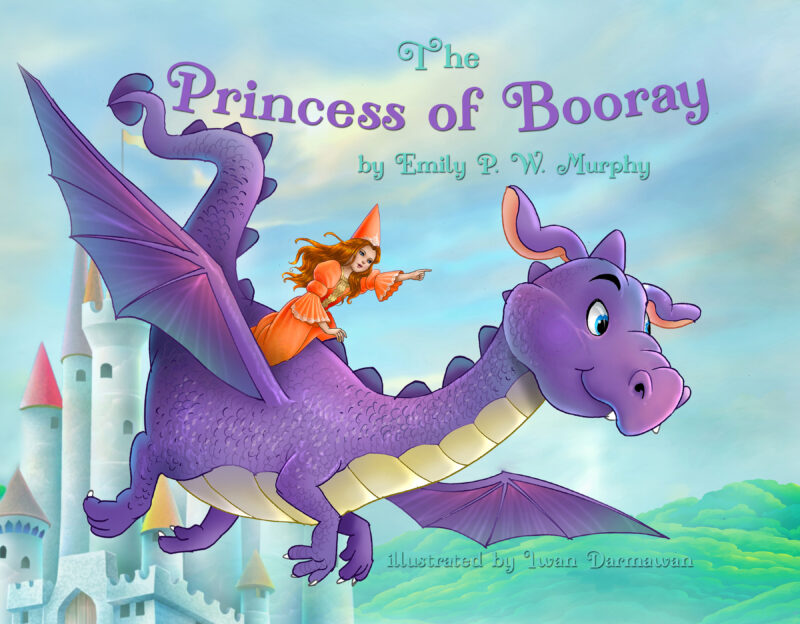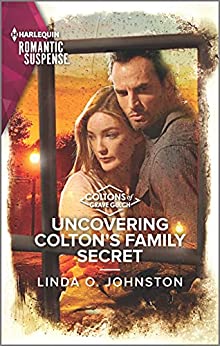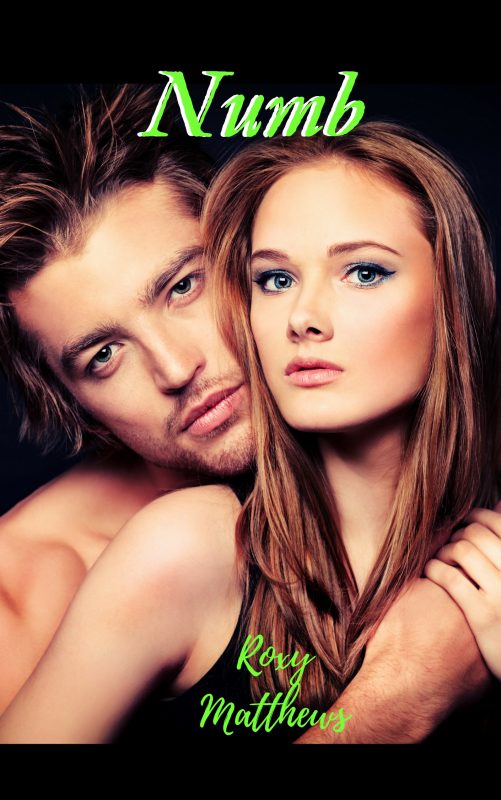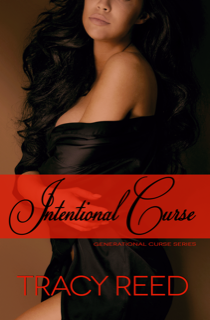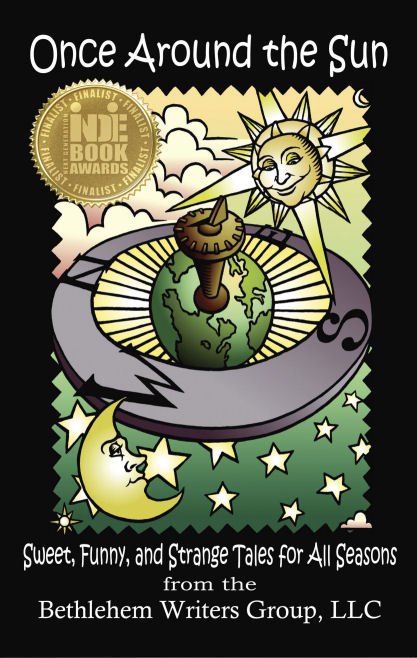Add Conflict to your Story with a Down & Dirty Fight
August 18, 2011 by A Slice of Orange in category Archives tagged as Jenny Hansen, More Cowbell, OCC/RWA, Technology Fun, writing, writing craftby Jenny Hansen
Today we’re going to talk about Dirty Fighting. What is it, and why do you want to do it?
To start at the beginning, last weekend my honey was cleaning the office and he came across a piece of paper that made us laugh our faces off. This four page document he found – called, “Dirty Fighting Techniques†– helped save our relationship back in 2006.
Note: Dirty Fighting isn’t about some how-to guide on Jujitsu or Street Fighting. Nope, it’s actually a list of twenty-two items given to us by our counselor to teach us the difference between the Dirty Fighting Techniques practiced by most people and the clean-as-a-whistle fighting he wanted us to strive for.
We’ve got to understand the goal before we can turn it upside down on its head, right?
What is clean fighting?
Clean Fighting follows these basic rules:
- Take responsibility for your own stuff. Also known as “cleaning up your own side of the street.†I know it sucks when you’re mad and you clean up your side while the other person leaves their big cow patties steaming, but lead by example on this one. It helps when someone steps up to be the bigger person.
- Leave the other person an “out with dignity.†This is most often achieved by understanding that there might be facts you don’t know.
- “I†statements are always going to work better when you’re pissed off than “you†statements. And don’t try to cheat with crap like, “I understand that you’re a selfish bastard.â€
- Talk about the behavior in those “I†statements, not any personality disorders you think they should address.
- Stick to the point. Resist throwing in the kitchen sink of laments spanning back over months of why they’re a (fill in the blank).
- Deliberately pushing buttons is REALLY dirty. The weak underbelly is to be avoided, even if you’re thinking your partner is lower than a yellow-bellied toad for siding with your mother-in-law over you.
Here is a clean fight summed up in 4 easy steps:
1. How you feel (use an “I†statement for this)
2. The behavior that prompted that feeling
3. Why it’s important/the background (i.e. what button did they push)
4. What would you want them to do differently next time
Sounds simple, doesn’t it? Go try it. It’s really hard to do when you’re mad. Most people who are angry fight dirty. Clean fighting takes some rigorous training.

Now let me ask you something. Do you really think your characters have had any of this sort of training? It’s pretty unlikely unless you’re writing about a psychologist. It’s much more likely that your character will be flawed like the rest of us.
What Makes Great Fiction?
- Great books are filled with conflict.
- And great characters (who learn important lessons).
- Great fiction rips emotion out of us readers.
- Oftentimes a great book will make you see yourself inside those pages.
Understanding the difference between clean and dirty fighting will give you a TON of mileage in your own stories. If you need plausible arguments and dialog, Dirty Fighting Techniques will help you achieve this. These techniques can be applied with a friend, family member or a significant other…it doesn’t really matter.
Every entry I’m sharing is guaranteed to make the other person see red. If you’re writing fiction, that anger and tension is a REALLY good thing. If I give you all twenty-two at once, it will be like taking a drink of water from a fire hydrant so we’re going to start with the five that will work best in fiction.
FIVE?? That’s all the Dirty Fighting I get off that list, you might ask… Yep. Five is all you get…until the next time we discuss the topic. I’m gonna make this a multi-part post so you have time to really roll around in the Dirty Fighting Swamp. Go ahead, get dirty. Be the bog.

As I said earlier, great books are filled with conflict. And great characters who learn important lessons. Plus, dialog is the number one way to do several fun things like move your story quickly and legally bring in backstory.
Note: For a rundown of the perils of Back Story, read Kristen Lamb’s Monday post.
- How To Write Dialogue: 6 Ways To Use it Effectively
- Dialogue Tags: How To Kill Off Some Of The Little Buggers by Sharla Rae
- He Said, She Said: Dialogue by Roni Loren
However, one of the problems I have with reading about dialog is that every character is unique and, even though the examples are usually awesome, my characters would never say those things. How do you think of creative things to say that would apply ONLY to our character?
One answer is to make him or her fight.
Since gratuitous fighting in a story is like gratuitous sex (kinda boring if there’s no real connection or reason for it), the author needs to find a great reason for the fight. How you use the fight is up to you but I think the easiest way to pave the road to this rad fight is to discover what your characters really want. Then dig down for what they really, really want. (You’ll remember this trick from Leanne Banks.)
DON’T give it to them. Or at least, don’t give it too soon.
Then flake away more layers to uncover what your character really fears. Then what they really, really fear. DO give that to them! This is where things get interesting. You not only have characters who are upset, you’ve also found a myriad of ways to slide everybody deeper into your story. To do this, ask your character questions.
Perhaps you’ll use the 9 questions I discussed a few weeks back in my post on Character Engagement or new ones that are all your own. Below are some of mine to help you get started.
1. What matters most to this character? (What is he or she most afraid to lose?)
2. Who matters most? (This is usually the person they are most afraid to lose.)
3. How did the character’s parents fight?
4. How did the character’s parents interact with him or her?
5. What does this character wish he or she had gotten in childhood?
6. What does my character want to be when they grow up
All of these questions can provide you with cues about where your character is “broken†and give you ideas about fixing the broken part (i.e. Fix = Lesson).
Now it’s time to unleash that fight! BRING. IT. ON!!

Below are my top five Dirty Fighting Techniques for adding tension and plotting options to your story. I’ll save the rest for a later post so you can really play with the first five. (Your sarcasm muscle – which is always used in a Dirty Dogfight – should get a quick flex before you begin.)
#1 – Triangulating: Don’t leave the issue between you and your conflict partner (could be a family member, friend or love interest), pull everybody in. Quote well-known authorities who agree with you and list every family member whom you know has taken your side (and lie about the ones you haven’t spoken to yet).
Uses: Triangulating is incredibly useful in fiction because you can expand the discussion to more characters and stir up some real drama. Let’s not keep this issue between just us, one character says to the other. Oh no, lets involve everybody.
If you have extreme Dirty Fighting Talent, you can stir the pot and then step back and play a new game called, “Let’s watch the other two people fight.†That’s good times.
#2 – Escalating: Quickly move from the main issue of the argument to questioning your partner’s basic personality, and then move on to wondering whether the relationship is even worth it. Blame your partner for having a flawed personality so that a happy relationship will be impossible.
Uses: Excellent tool for keeping two love interests apart. BUT, the fight better be about something that really, really matters or you risk falling into the Bog of Coincidence and most stories don’t have enough muscle to climb out of that place.
Escalating also allows for plausible use of Back Story. When you’re moving from the main
issue to the REAL issue (often happens at the black moment / end of Act 2), escalating the argument will make someone lose control enough that they blurt out something juicy. Way to go, Author!
#3 – Leaving: No problem is so big or important that it can’t be ignored or abandoned all together. Walk out of the room, leave the house, or just refuse to talk. Sometimes just threatening to leave can accomplish the same thing without all the inconvenience of following through.
Uses: My favorite use of this is employing it when the two characters really need each other. It completely ups the betrayal factor: I can’t depend on you, I don’t trust you, You’ve let me down.
You noticed how dirty that last statement was, right? Not a clean fight to be found anywhere with “leaving,” which is fantastic for your story! The farther your character falls, the harder the journey is on the way back up, right?
#4 – Timing: Look for a time when your partner is least able to respond or least expects an argument.
Uses: Think about this from a story point of view. A really great time to pick a fight is just before the main character embarks on a journey, has a new murder to solve, is called on to save the world. Anything with high stakes works great. Be sure the character ambushing them is a likeable one so the reader REALLY gets drawn into the conflict.
#5 – Rejecting Compromise: Never back down. Stick with the philosophy that only one of you can win.
Uses: This is a kickass Dirty Fighting trick to use on the main character. If there is only one winner, there is automatic conflict involved for the person who “loses.” The solutions are endless.
What do you think? What are some other ways you could use a good fight to help your
character grow or advance your story? Do you use any of the five techniques in your own life…come on, you can tell us! Let’s hear your fabulous Dirty (Fighting) Thoughts!
Jenny
Encouraging Words by Kitty Bucholtz
August 10, 2011 by A Slice of Orange in category Archives tagged as It's Worth ItIt’s a funny thing about words – a little bit of positive reinforcement or a little bit of negativity go a long way. People remember the harsh things said to them or about them. And while we tend to more quickly forget the positive words, their power continues to work within us.

August Calls for Submissions
August 1, 2011 by A Slice of Orange in category Archives tagged as Calls for Submission, Louisa Bacio
Social Media and Your Author Brand
July 18, 2011 by A Slice of Orange in category Archives tagged as author branding, building a brand, Jenny Hansen, More Cowbell, Social Media, Twitter, Twitter hashtags, Writers In the StormI see many of you on Twitter and Facebook. I’ve been enjoying meeting even more of you on A Slice of Orange Daily, created by our very own Blog Mistress, Marianne Donley. I even see a few of you on LinkedIn.
Where are my OCC peeps conspicuously absent?
It’s pretty rare for me to see more than a few OCC’ers in my hashtag chats, with the possible exception of #myWANA. Either you’re hanging out somewhere else (that you’ll hopefully mention in the comments section) or you’re not using Twitter as fully as you could be.
Note: If you’re scratching your head over this hashtag business, please read this post on what Twitter hashtags are and why we need them.
OCC authors are very in-the-know about the changes sweeping through the publishing industry. I am so thankful to belong to a chapter with such amazing resources, and so many generous authors. We’re lucky to be on the cutting edge of this upheaval, so I’ll skip over that part since you all are pretty up to date.
If you don’t feel “up to date” and want to read more about the changing state of publishing, it’s hard to find a better resource than Kristine Kathryn Rusch and her publishing industry blogs.
This brave new world of publishing demands that an author build a brand.
What does that mean exactly? Simply put, your brand is the picture that pops into people’s mind when they hear your name.
For established authors, this picture is usually tied to one (or many) of your books. For the new or unpublished author, you need to get started on forming that picture in people’s mind as soon as possible. Participation in social media is one of the easiest ways to do this.
For more detailed information on branding, here are some of the best blogs I’ve found on the subject from people who say it far better than I do.
- Jami Gold’s How Do You Decide On Your Author Brand? – Part 1 and Part 2
- Jami has another wonderful post on Branding 101 – Online Brand vs. Author Brand
- An older post from leadership guru Michael Hyatt that still applies – 7 Ways to Build Your Author Brand Online
- Kristen Lamb’s must-read post on Bob Mayer’s Blog: Building An Author Brand.
- Bob Mayer discusses Social Media and the Writer in his Publishing Lessons series.
Particularly now that so many authors are going the Indie route with smaller independent publishers or even venturing into self-publishing for their first book, author branding is no longer a “nice to have.â€
Read the posts above and take a look at these two books: Kristen Lamb’s We Are Not Alone: A Writer’s Guide to Social Media, and Bob Mayer’s Warrior Writer. They will put you light years ahead of where you would have gotten on your own.
My personal observation is that people are seeking authentic connections and that, by branding themselves, an author is opening themselves up for connecting.
In my own experience on Twitter and both of my blogs, your Followers and your Tweeps become your friends. We spend time with these people, whether it’s chatting on Facebook, having a Worldwide Book Launch Party or sharing Sunday morning coffee.
Seemingly disparate people throughout the world are connecting through social media and enjoying the hell out of each other. It’s a beautiful thing.
Perhaps you don’t know where people are gathering on Twitter.
Fret no more…here’s the list of where my Tweeps and I hang out. This is your invitation to hang out with us. If you are hanging out somewhere else online, we want to know where that is!
Note: If I’ve missed any really cool hashtags, please let me know in the comments.
#myWANA – This love revolution started on Kristen Lamb’s blog (WANA stands for We Are Not Alone…I’ve linked to the book above)
#weWRITE – Hashtag started by Anna DeStefano and Jenni Talty based on their How We Write Wednesday Series. Note: There are no links allowed in this group – conversation on writing only…you’ll have to post your links elsewhere.
#PubWrite – these tweeps enjoy writing, sharing ideas and frustrations, and the occasional adult beverage.
#amwriting – writers from everywhere hang out here and encourage each other as they write. If this is your hangout, you might also enjoy http://amwriting.org/.
#amediting – writers from everywhere hang out here and encourage each other as they edit their works-in-progress.
#wordmongering – writers do timed sprints of 30 mins at :00 and/or :30 every hour. This is fun 24/7 and participants say they get so much writing done.
#Row80 – Hashtag started by Kait Nolan that I’m participating in. This is a writing challenge that lasts 80 days and requires that you publicly post your goal. For more details go here.
#nanowrimo – When November rolls around, the agony and the ecstacy of National Novel Writing Month can be found here. (Until then, we have Row80!)
What about you? Where do you commune with people on Twitter or Facebook (and why)? Are there groups of writers that you recommend above all others? Please share your discoveries with the rest of us!
~Jenny
http://jennyhansenauthor.wordpress.com
http://writersinthestorm.wordpress.com
Twitter: @jhansenwrites
e-maginings: That Is My Favorite Word
July 16, 2011 by A Slice of Orange in category Archives tagged as e-maginings, revision |
| Deception coming from Amber Allure Aug. 2011 Linda McLaughlin aka Lyndi Lamont |
Every writer has a favorite word. You know, the one that creeps into your writing, over and over again, when you’re not paying attention.
In my case, the word is “that”. Every time I have to submit a manuscript I try to remember to do a global search for the word “that” and cut as many as possible. If I don’t, my editor will point out how much I’ve overused the word. You’d think “that” would be a fairly invisible word, like “the” but it isn’t. Not quite anyway, another word I have to watch out for, especially when I’m writing a historical with British characters.
For some writers, the favorite word is the generally useless “very”. Even if it’s not your favorite word, it’s a good one to search out and eliminate wherever possible.
My former writing partner, Anne Farrell, and I are revising our old Precious Gem romance for self-publishing as an e-book. It has been thirteen years since it was released, way back in the last century. So we’re updating the manuscript and looking to revise and tighten it as we go, including cutting out as many that’s as possible.
So what’s your favorite word?
Linda Mac
1 0 Read moreAffiliate Links
A Slice of Orange is an affiliate with some of the booksellers listed on this website, including Barnes & Nobel, Books A Million, iBooks, Kobo, and Smashwords. This means A Slice of Orange may earn a small advertising fee from sales made through the links used on this website. There are reminders of these affiliate links on the pages for individual books.
Search A Slice of Orange
Find a Column
Archives
Featured Books
THE PRINCESS OF BOORAY
You would expect the life of a princess to be full of delight . . .
More info →UNDERCOVERING COLTON’S FAMILY SECRETS
Coming face-to-face with her past…
More info →NUMB
Will greed prevail, landing the Vitality Gem in the hands of an unpure soul or will Johnny Tanzer stand in his way with the wrath of the Gods?
More info →INTENTIONAL CURSE
Before Dr. Eric King was with Kyla, he chased Olivia Bennett.
More info →ONCE AROUND THE SUN: Sweet, Funny, and Stranges Tales for All Seasons
Stories about winter, spring, summer and fall, and seasons of life, seasons of love, and even seasons of discovery.
More info →Newsletter
Contributing Authors
Search A Slice of Orange
Find a Column
Archives
Authors in the Bookstore
- A. E. Decker
- A. J. Scudiere
- A.J. Sidransky
- Abby Collette
- Alanna Lucus
- Albert Marrin
- Alice Duncan
- Alina K. Field
- Alison Green Myers
- Andi Lawrencovna
- Andrew C Raiford
- Angela Pryce
- Aviva Vaughn
- Barbara Ankrum
- Bethlehem Writers Group, LLC
- Carol L. Wright
- Celeste Barclay
- Christina Alexandra
- Christopher D. Ochs
- Claire Davon
- Claire Naden
- Courtnee Turner Hoyle
- Courtney Annicchiarico
- D. Lieber
- Daniel V. Meier Jr.
- Debra Dixon
- Debra H. Goldstein
- Debra Holland
- Dee Ann Palmer
- Denise M. Colby
- Diane Benefiel
- Diane Sismour
- Dianna Sinovic
- DT Krippene
- E.B. Dawson
- Emilie Dallaire
- Emily Brightwell
- Emily PW Murphy
- Fae Rowen
- Faith L. Justice
- Frances Amati
- Geralyn Corcillo
- Glynnis Campbell
- Greg Jolley
- H. O. Charles
- Jaclyn Roché
- Jacqueline Diamond
- Janet Lynn and Will Zeilinger
- Jaya Mehta
- Jeff Baird
- Jenna Barwin
- Jenne Kern
- Jennifer D. Bokal
- Jennifer Lyon
- Jerome W. McFadden
- Jill Piscitello
- Jina Bacarr
- Jo A. Hiestand
- Jodi Bogert
- Jolina Petersheim
- Jonathan Maberry
- Joy Allyson
- Judy Duarte
- Justin Murphy
- Justine Davis
- Kat Martin
- Kidd Wadsworth
- Kitty Bucholtz
- Kristy Tate
- Larry Deibert
- Larry Hamilton
- Laura Drake
- Laurie Stevens
- Leslie Knowles
- Li-Ying Lundquist
- Linda Carroll-Bradd
- Linda Lappin
- Linda McLaughlin
- Linda O. Johnston
- Lisa Preston
- Lolo Paige
- Loran Holt
- Lynette M. Burrows
- Lyssa Kay Adams
- Madeline Ash
- Margarita Engle
- Marguerite Quantaine
- Marianne H. Donley
- Mary Castillo
- Maureen Klovers
- Megan Haskell
- Melanie Waterbury
- Melisa Rivero
- Melissa Chambers
- Melodie Winawer
- Meriam Wilhelm
- Mikel J. Wilson
- Mindy Neff
- Monica McCabe
- Nancy Brashear
- Neetu Malik
- Nikki Prince
- Once Upon Anthologies
- Paula Gail Benson
- Penny Reid
- Peter Barbour
- Priscilla Oliveras
- R. H. Kohno
- Rachel Hailey
- Ralph Hieb
- Ramcy Diek
- Ransom Stephens
- Rebecca Forster
- Renae Wrich
- Roxy Matthews
- Ryder Hunte Clancy
- Sally Paradysz
- Sheila Colón-Bagley
- Simone de Muñoz
- Sophie Barnes
- Susan Kaye Quinn
- Susan Lynn Meyer
- Susan Squires
- T. D. Fox
- Tara C. Allred
- Tara Lain
- Tari Lynn Jewett
- Terri Osburn
- Tracy Reed
- Vera Jane Cook
- Vicki Crum
- Writing Something Romantic
Affiliate Links
A Slice of Orange is an affiliate with some of the booksellers listed on this website, including Barnes & Nobel, Books A Million, iBooks, Kobo, and Smashwords. This means A Slice of Orange may earn a small advertising fee from sales made through the links used on this website. There are reminders of these affiliate links on the pages for individual books.


